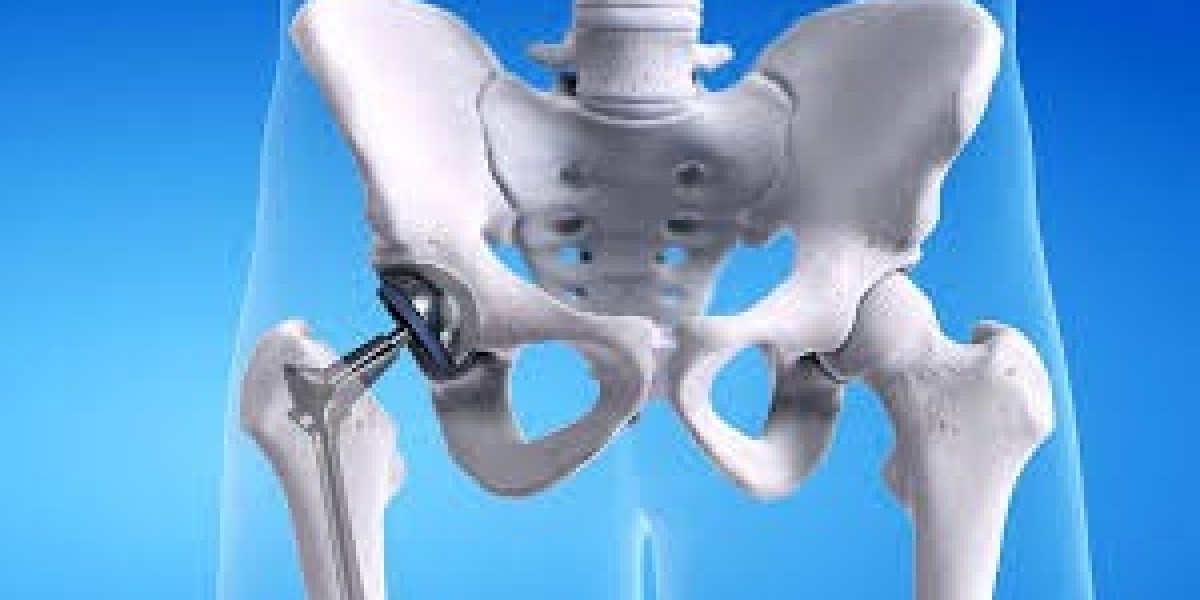Hip replacement surgery is a transformative procedure that helps individuals suffering from chronic hip pain or mobility issues regain their independence and return to an active lifestyle. While both men and women can benefit from this surgery, it is essential to understand how it specifically impacts women and how the recovery process is tailored to meet their unique needs.
What is Hip Replacement Surgery?
Hip replacement surgery involves removing a damaged or worn-out hip joint and replacing it with an artificial implant made from durable materials like metal, ceramic, or plastic. It is typically recommended for individuals suffering from severe arthritis, hip fractures, or degenerative joint conditions that cause constant pain, stiffness, and a decreased range of motion. While many associate hip replacement with older adults, it is important to note that the surgery can also be beneficial for younger patients experiencing significant pain that affects their daily lives.
Why Do Women Experience Different Hip Replacement Outcomes?
There are some notable differences in how women experience hip replacement surgery compared to men. One of the main factors is that women tend to have smaller, narrower hips and different biomechanics, which can affect the type of implant used and the surgical approach taken. Studies also suggest that women are more likely to develop osteoarthritis, the most common cause of hip pain that leads to the need for a hip replacement, at a younger age than men. Women generally experience a longer duration of pain before seeking surgical intervention, making the procedure a vital option for restoring mobility and improving quality of life.
What to Expect During Female Hip Replacement Surgery
For women, hip replacement surgery follows the same process as for men. Before the procedure, the orthopedic surgeon will perform a series of diagnostic tests, including X-rays, to assess the extent of joint damage and plan for the most effective surgery. The surgery itself typically lasts between one to two hours. The damaged hip joint is carefully removed, and the new prosthetic joint is carefully positioned. After the procedure, patients are usually required to stay in the hospital for a few days for monitoring and pain management.
Post-Surgery Recovery and Rehabilitation
The recovery process is a critical part of the hip replacement journey. For women, the rehabilitation period often involves physical therapy to regain strength and flexibility. Physical therapy helps rebuild muscle strength around the new hip joint and teaches safe movements to prevent complications such as dislocation.
Most women are able to begin walking with the help of a walker or crutches within a day or two after surgery. Full recovery can take several months, but with time, many patients experience dramatic improvements in mobility, pain relief, and overall quality of life.
The Emotional Impact of Female Hip Replacement Surgery
The decision to undergo hip replacement surgery is a significant one, both physically and emotionally. For women, the emotional impact of hip pain—such as the frustration of limited mobility or the inability to care for loved ones—can be just as challenging as the physical pain itself. However, once the surgery is complete, many women experience a tremendous sense of relief. No longer burdened by constant hip pain, patients report feeling rejuvenated and more capable of engaging in everyday activities like walking, exercising, and even traveling.
Conclusion:
Female hip replacement surgery provides long-lasting relief from chronic hip pain, allowing women to regain their independence and enhance their quality of life. With advancements in surgical techniques and rehabilitation methods, hip replacement surgery offers a path to improved mobility and a pain-free lifestyle. If you're considering hip replacement surgery, consulting with an orthopedic surgeon who specializes in joint replacement can help you determine the best plan for your individual needs and ensure a successful outcome.
For More Treatment Information Below Link:-
https://www.edhacare.com/treatments/gynecology/molar-pregnancy-treatment/
https://www.edhacare.com/ar/treatments/gynecology/uterine-prolapse-surgery/
https://www.edhacare.com/treatments/nephrology/hydronephrosis/
https://www.edhacare.com/ar/blogs/pacemaker-implantation-cost-in-india/
https://www.edhacare.com/ar/blogs/intestine-swelling-symptoms/
https://www.edhacare.com/blogs/roemheld-syndrome-treatment/
https://www.edhacare.com/ar/hospitals/cardiology-treatment-in-cairo/
https://www.edhacare.com/ar/treatments/urology/urethral-surgery/
https://www.edhacare.com/ar/hospital/medcare-hospital/
https://www.edhacare.com/ar/treatments/gynecology/pelvic-adhesiolysis/



